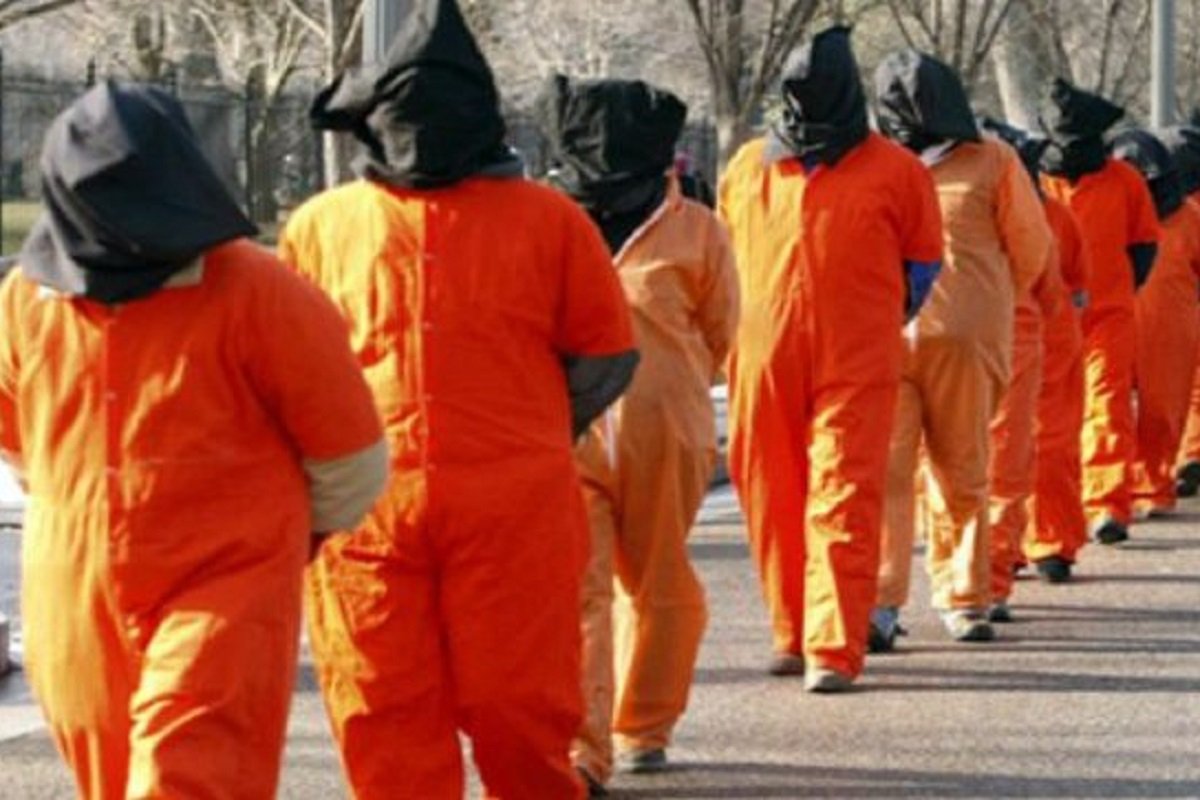Jailed journalists may protest against the identical uniforms, which has been planned by the despotic regime of Turkey’s autocratic Presindent Recep Tayyip Erdoğan, by undressing during their court hearings, told jailed journalist Mahir Kanaat from BirGün daily to a visiting deputy of Turkey’s main opposition Republican People’s Party (CHP).
Jailed journalist Kanaat’s words to CHP deputy Utku Çakıözer, who was also a former journalist, during his visit to İstanbul’s infamous Silivri Prison were revealed in an interview with Çakırözer published on the Odatw news website on Sunday.
Stating that all imprisoned journalists are “uneasy” over the discussion on possible standardized outfits, Çakıözer said journalist Kanaat referred to measures taken after Turkey’s military coup in 1980. “Just like those being tried in cases after the 1980 coup protested against the identical uniforms by undressing, we are determined to do the same,” journalist Kanaat said.
Kanaat, who detained by Turkish government on December 25, 2016, is accused of having connections to the hacker group RedHack. He is charged with “being a member of an armed terrorist organization” despite he has denied all accusations.
Çakırözer also condemned the possible standardized outfit measure, saying it would overshadow the right to a fair trial. “Those governing our country should think very well of the trauma and negative psychology that such a measure would cause. All the journalists who I have met, without exception, are disturbed about this issue. If such a ruling comes out, they are thinking of not attending to the trials and not even defending themselves. The decision to implement a single-type uniform would overshow the holiness of the principles of a right to defense and the right to a fair trial,” he said.
“Who would win from the image of a journalist undressing in front of the court? [Such an image] would cause all of us in Turkey to lose. It would create a bad perception for Turkey in front of the world,” Çakırözer added.
Despite reactions that it would be against human rights, Turkey’s autocratic President Erdoğan had reiterated numbers of time that identical uniforms designed for jailed suspects in trials concerning a failed coup will soon be put into practice.
“You will soon see them [jailed people allegedly linked to the Gülen movement] in identical uniforms. Our judiciary will make decisions [about them] by the end of this year,” said Erdoğan during a ruling Justice and Development Party (AKP) meeting in İstanbul on August 20.
Deputy Prime Minister and government spokesperson Bekir Bozdağ also said on August 15 that the matter of identical uniforms can only be enforced by a law or government decree and that he expects that it will be included in an upcoming decree.
After noncommissioned officer Gökhan Güçlü, one of the suspects on trial for an assassination attempt against President Erdoğan on the night of the coup attempt on July 15, 2016, was thrown out of the courtroom on July 13 for wearing a T-shirt bearing the word “hero” on it, Turkey’s Justice Ministry announced on July 31 that all suspects in ongoing failed coup trials were going to wear identical brown uniforms during court hearings.
Pro-Kurdish Peoples’ Democratic Party (HDP) parliamentary group deputy chairman Ahmet Yıldırım said on August 17 that the government made Gökhan Güçlü wear the hero T-shirt in order to impose identical uniforms on inmates.
Justice Minister Abdülhamit Gül said that if a proposed government regulation on uniforms for coup suspects were adopted, nearly 50,000 uniforms would be sewn by inmates and then sent to prisons holding suspects in cases involving followers of the Gülen movement.
Speaking on the issue in July, President Erdoğan said: “We recently spoke to Mr. Prime Minister. They should wear uniforms like they do at Guantanamo [prison] when going to court.”
Former European Court of Human Rights (ECtHR) judge Rıza Türmen said obliging all suspects in ongoing trials concerning the failed coup to wear identical uniforms is against human rights and violates the right to a fair trial.
Turkey is the biggest jailer of journalists in the world. The most recent figures documented by the Stockholm Center for Freedom (SCF) has showed that 283 journalists and media workers are now in jails as of August 18, 2017, most in pre-trial detention languishing in notorious Turkish prisons without even a conviction. Of those in Turkish prisons, 258 are arrested pending trial, only 25 journalists remain convicted and serving time in Turkish prisons. An outstanding detention warrants remain for 135 journalists who live in exile or remain at large in Turkey.
Detaining tens of thousands of people over alleged links to the movement, the government also closed down more than 180 media outlets after the controversial coup attempt. Turkey’s Contemporary Journalists’ Association (ÇGD) recently announced that more than 900 press cards were cancelled.
Turkey survived a controversial military coup attempt on July 15, 2016 that killed 249 people. Immediately after the putsch the ruling AKP government along with President Erdoğan pinned the blame on the Gülen movement.
Fethullah Gülen, who inspired the movement, strongly denied having any role in the failed coup and called for an international investigation into it, but President Erdoğan — calling the coup attempt “a gift from God” — and the government initiated a widespread purge aimed at cleansing sympathizers of the movement from within state institutions, dehumanizing its popular figures and putting them in custody.
Turkey’s Justice Ministry announced on July 13 that 50,510 people have been arrested and 169,013 have been the subject of legal proceedings on coup charges since the failed coup.















